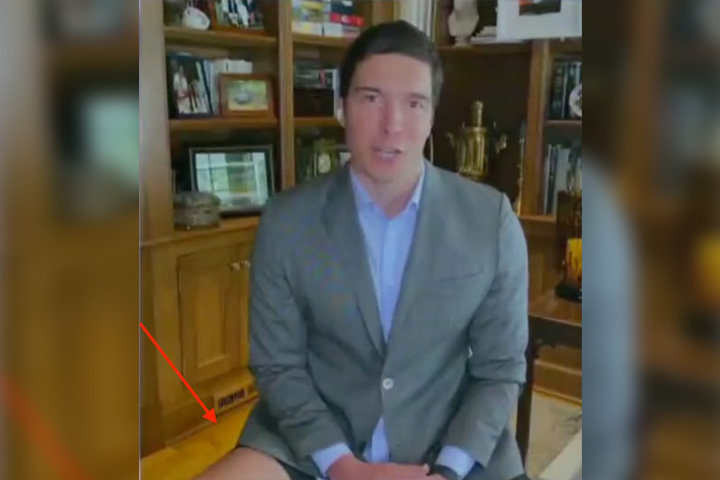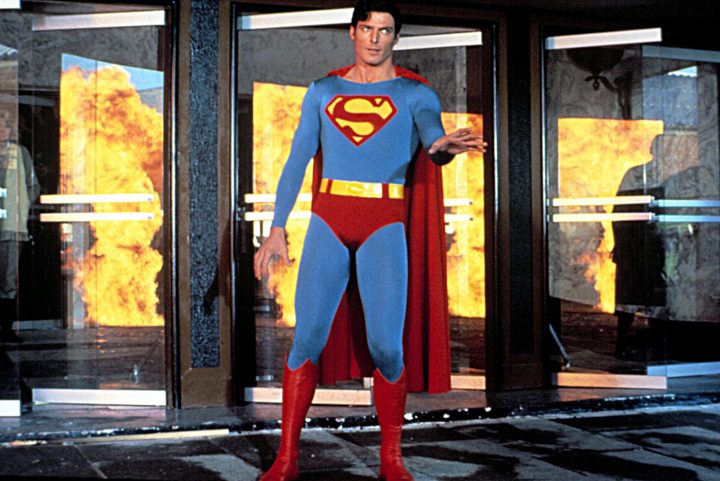No one wants to get caught with their pants down, especially when they’re working from home on a nationally televised broadcast during a coronavirus pandemic.

Good Morning America reporter Will Reeve lived a nightmare of his own making on Tuesday morning when he appeared on live television wearing a full suit above the waist — and nothing but tiny shorts below it.
Reeve was reporting from home as a correspondent for GMA, but he failed to angle the camera properly to hide that he wasn’t wearing any pants. His thighs were clearly visible at the bottom of the frame, although he at least appeared to be wearing short-shorts or some form of underwear.
His late father, actor Christopher Reeve, also showed his trunks at work, though he only did so while playing Superman and not as his alter ego, the reporter Clark Kent.
Reeve also prompted comparisons to Will Ferrell, whose character Ron Burgundy reported the news without wearing pants in Anchorman.

Get daily National news
“Nice shorts,” wrote the popular Room Rater account on Twitter, along with a screenshot of Reeve on air. The account is well-known for poking fun at reporters’ backgrounds when they appear on TV from their homes.
Reeve acknowledged the embarrassing moment by retweeting Room Rater.
“I have ARRIVED … in the most hilariously mortifying way possible,” Reeve wrote in the retweet.
He explained in a later tweet that he was trying to “be efficient” by putting on workout clothes below the waist so that he could quickly get in some exercise after the TV hit.
“The camera angle, along with friends, family and several hundred strangers on the social media made me rethink my morning routine,” he wrote. He added that the self-framed live shot went “too wide.”
“Now, back to work,” Reeve wrote on Twitter. “Wearing pants.”
—
Questions about COVID-19? Here are some things you need to know:
Health officials caution against all international travel. Returning travellers are legally obligated to self-isolate for 14 days, beginning March 26, in case they develop symptoms and to prevent spreading the virus to others. Some provinces and territories have also implemented additional recommendations or enforcement measures to ensure those returning to the area self-isolate.
Symptoms can include fever, cough and difficulty breathing — very similar to a cold or flu. Some people can develop a more severe illness. People most at risk of this include older adults and people with severe chronic medical conditions like heart, lung or kidney disease. If you develop symptoms, contact public health authorities.
To prevent the virus from spreading, experts recommend frequent handwashing and coughing into your sleeve. They also recommend minimizing contact with others, staying home as much as possible and maintaining a distance of two metres from other people if you go out.
For full COVID-19 coverage from Global News, click here.










Comments
Want to discuss? Please read our Commenting Policy first.